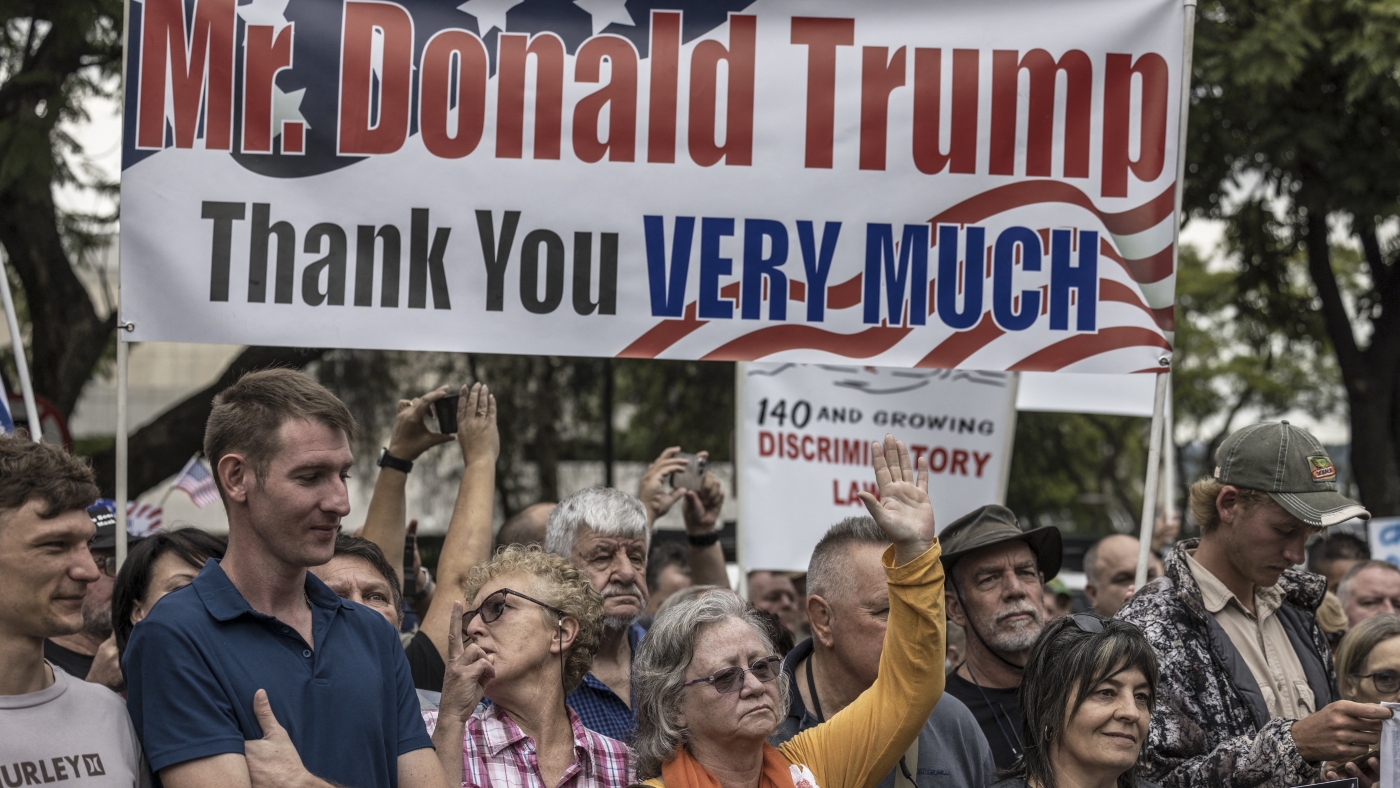The Paradox of Trump’s Refugee Policies
The Enigmatic Shift in U.S. Refugee Policies
The Trump administration’s approach to refugee policies has been a rollercoaster of contradictions, none more puzzling than the stark contrast between the suspension of the general refugee program and the open invitation to white South Africans, particularly Afrikaners, to resettle in the United States. This dichotomy invites a closer examination of the underlying motivations and broader implications of such policies. To unravel this enigma, it is crucial to explore the specifics of Trump’s executive order, the criteria for refugee status, and the broader context of U.S. immigration policies.
The Afrikaner Exception: A Closer Look
In February 2019, President Trump signed an executive order that encouraged the resettlement of Afrikaners in the United States. The rationale behind this order was rooted in concerns over a South African law on land expropriation and affirmative action, which Trump administration officials claimed discriminated against Afrikaners. This order is particularly striking given the contemporaneous significant reduction in the U.S.’s overall refugee admissions. The U.S. had effectively banned most refugees, including 20,000 individuals who were already prepared to travel to the United States before Trump took office. Yet, amidst this restrictive climate, Afrikaners were granted an exception, receiving refugee status and facilitated resettlement.
Persecution Claims and the Path to Refugee Status
The U.S. government’s approach to interviewing white South Africans seeking refugee status has been notably focused on their experiences with land disputes, crime, and perceived racism. This emphasis on persecution claims marks a significant departure from the broader refugee policies, which have seen refugees from other countries facing deportation or being barred from entry. The swift processing and preferential treatment accorded to the first group of 54 Afrikaner South Africans, who were granted refugee status and welcomed by U.S. dignitaries, underscores the unique status afforded to this group.
The Racial and Political Undercurrents
The executive order granting Afrikaners refugee status has ignited a firestorm of controversy and debate. Critics contend that the order is racially motivated, favoring a white minority group over other refugees who may face similar or even more severe persecution. The order’s provision to suspend aid to South Africa and its definition of Afrikaners as a group eligible for refugee status due to alleged race-based discrimination have been seen as political maneuvers aimed at appealing to specific voter bases rather than genuine efforts to address global refugee issues.
Public and Political Reactions: A Mixed Bag
The reaction to Trump’s executive order has been a tapestry of diverse viewpoints. While some Afrikaners view it as a lifeline, others, like Max du Preez, the founding editor of the Vrye Weekblad newspaper, have been vocal in their criticism. Du Preez argues that Afrikaners are not victims and that the rhetoric of genocide is misplaced. He posits that the U.S. administration lacks a nuanced understanding of South Africa’s thriving social and political landscape, thereby misinterpreting the complexities of the situation.
The Pathway to Resettlement
For Afrikaners seeking refuge in the U.S., several avenues are available: applying for refugee resettlement, entering with a visa, or requesting asylum at a U.S. port of entry. The U.S. Refugee Admissions Program (USRAP) serves as the legal pathway through which individuals who qualify as refugees under U.S. law may be resettled in the United States. Upon arrival, refugees must apply for permanent residency (a green card) one year later and can subsequently apply for U.S. citizenship. This structured process ensures that those granted refugee status have a clear pathway to integration and citizenship.
The Broader Implications
The preferential treatment given to Afrikaners, juxtaposed with the suspension of the general refugee program, highlights a paradox that reflects the political and racial dimensions of Trump’s administration. This policy is likely to continue sparking debate and scrutiny, both within the U.S. and on the international stage. The broader implications of such a policy extend beyond the immediate beneficiaries, raising questions about the fairness and consistency of U.S. refugee policies.
A Complex and Controversial Policy
Trump’s invitation to white South Africans to find a new home in the U.S. stands as a complex and controversial policy. While it offers a lifeline to a specific group, it also raises critical questions about racial bias and the broader refugee policies of the U.S. The preferential treatment given to Afrikaners, coupled with the suspension of the general refugee program, underscores a paradox that reflects the political and racial dimensions of Trump’s administration. This policy is poised to continue sparking debate and scrutiny, both within the U.S. and internationally, as stakeholders grapple with its implications and the broader questions it raises about refugee policy and racial equity.

